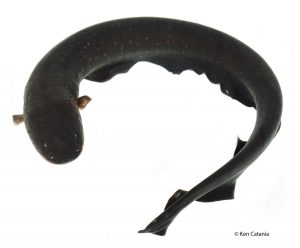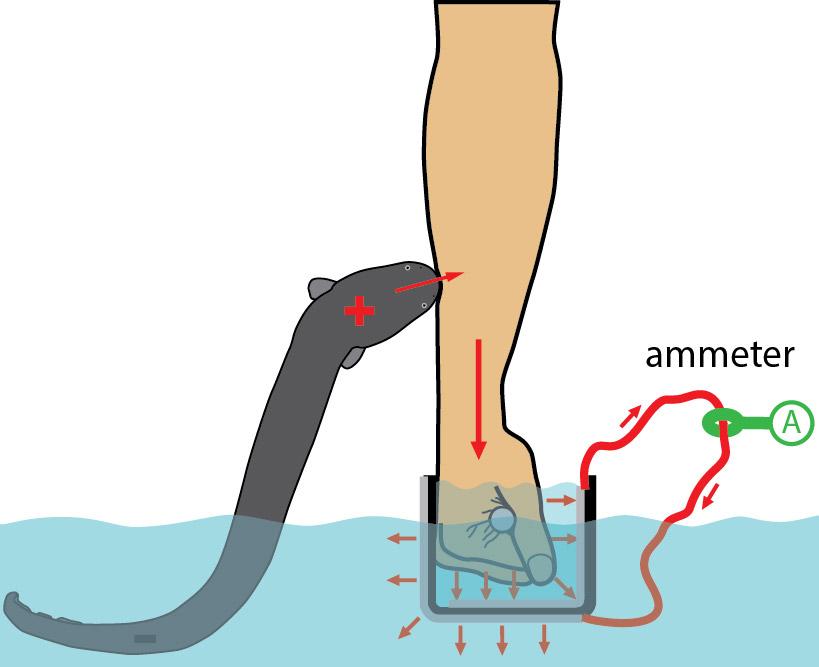Dr. Kenneth Catania, a professor of biology at Vanderbilt, recently conducted a shocking experiment to determine how much power an electric eel could impart to a human being. In order to accomplish this, he allowed the eels to shock his own arm. The experiment made national news, and Catania’s work was featured in publications like The New York Times and National Geographic. This particular experiment is the latest in a series of studies that Catania has done to observe the behavior of electric eels.
“This latest thing is the culmination of a lot of research and a circuit puzzle that I wanted to solve,” Catania said. “I had gone step by step to figure out each of the variables in this circuit that develops when the eel comes up out of the water. The eel coming up out of the water, in of itself, was amazing. So, this was not just to shock my arm, but there was a series of studies.”

Not only did Catania’s study reveal the amount of electricity an electric eel could impart to a human, but it also proved a story from nearly 200 years ago. In 1807, Alexander von Humboldt published an account of how he acquired electric eels for his research. Humboldt hired local fishermen in South America to catch some of the electric fish for him. They agreed, and told him that they would fish with horses. The fishermen reportedly drove wild horses into a puddle of water, where the eels leaped out of the water and shocked the horses. Once the eels were tired, the fishermen collected them easily.
The story had been told over and over again, but no one had been sure whether or not the leaping was an exaggeration, until now. Catania’s studies have shown how the eel can leap up to attack potential threats, such as his arm in this experiment. Catania noted, however, that he was never in danger from the electric shocks because it was a small electric eel.
Catania first became interested in electric eels in graduate school. He worked around people who were studying electric fish and even considered studying them himself. However, it was not until Catania received a Guggenheim Fellowship to write about the subjects he teaches in his class on neurobiology of behavior that he had an opportunity to research eels. Originally, he had only planned on writing a chapter on electric eels. He obtained some electric eels to observe them for the chapter, but then he noticed something interesting. When the eels shocked their prey, it remained frozen for three milliseconds.

“I got the electric eels, to get to know them to write about them better, and then I discovered some things that were interesting about them. But it basically began some of the most interesting research I’ve ever been involved in, accidentally.”
This led Catania to research how the electric eel was able to immobilize its prey. His findings were published in Science, a prestigious scientific journal. Essentially, Catania discovered that the eel could use high energy pulses to immobilize its prey, or it could use small high energy blips to cause its prey to jump, allowing the eel to locate it. These findings led to more research, which in turn led to seven other papers.
“At this point that there have been so many amazing things about them that I almost forget some of the things that have come out of this research,” Catania said. “The whole thing just reinforces my experience as a biologist that the animals around us are doing amazing things and that the closer you look the more amazing it gets. I’m never disappointed; they always surprise me in their abilities.”











